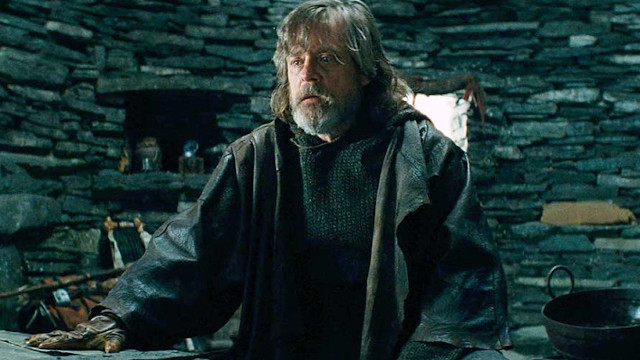Regarding timekeeping stuff, this goes back to the first film. George's script kept things vague. Owen referred to things locally and relatively (morning, midday), and Han used the vague "moments". The only hard-and-fast anything is him saying they'll be at Alderaan by "oh-two-hundred" (0200), a military timekeeping method and one of the subtle things hinting at him being former military, but also likely a reference to the internal schedule he keeps his ship on, independent of local time where he goes.
When Marcia did her last-minute re-edit and added the ticking-clock of the
Death Star attacking the Rebel base, all of the added off-screen dialogue was in minutes, on both the station and the moon, for the time to acquiring a firing solution.
I'll grant that the "earthisms" have been more numerous and jarring in the ST.
There's no real good solution. Brian Daley, in the old Han Solo novels, gave us "standard time-parts", in context an analogue for hours. There's been stuff that standard timekeeping has been by Coruscant/Imperial Center time, and planets in the Republic have something like the old newsroom wall with clocks showing the local time everywhere on Earth, but in that case local time and time on the capitol. I imagine Rey, having spend most of her conscious life on Jakku, and with a lot of the population in and around Niima Outpost not being spacers, she's in the habit of using local relative terms. When she says "weeks", she means Jakku weeks, etc.
As for Finn, I get the impression, from the mix of prefixes we hear on the Starkiller, that that planet is essentially "home base" for a lot of the First Order's operations. He probably grew up there, and we know he spent a lot of time there, despite being ostensibly "stationed" to the
Finalizer. For him, that probably
is "the sun".
His sun, his home star, because he knows no other home.
The lack of clarity on those two points is part of the over-compressed timeline of those films and general ongoing lack of awareness of what needs to be on the screen and what doesn't. If they'd had the breathing room, a couple added lines would have taken up less than a minute of screen time and made everything clearer. Like... "It draws its power from the sun." "From... you mean from the system's primary.
That sun?" "Yeah. Sorry. That's the only one I've ever known."
And
HeartBlade, I've wanted to contact the authors of that piece to clarify many of the points that you do, as well as the fact that Lucasfilm was always a bit ahead of the curve as far as inclusiveness. Lando wasn't written black (see McQuarrie's paintings). They just cast the best actor to fit the character. The heads of the Rebel forces in Star Wars and ROTJ are women. And yes, we've got non-male, non-white, and non-human Jedi all over the Prequels, but that was twenty years after the OT subliminally created the "knights and swords" male imagery of the Jedi. Despite Yoda.

